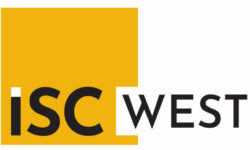Verizon Begins Installation of Smart Cities Pilot in Boston
The pilot calls for at least 40 sensors at a downtown intersection, including multiple cameras, a lighting control solution and broadband connectivity.

Verizon executives are calling their new Smart Cities installation in downtown Boston a "hyper-instrumented intersection."
BOSTON – Less than one year since announcing its intentions to launch a Smart Cities pilot project in downtown Boston, Verizon (NYSE: VZ) is now installing road sensors, cameras and connected lighting at the intersection of Massachusetts Avenue and Beacon Street.
Verizon inked a comprehensive agreement with the city of Boston in April to replace legacy copper wiring with new fiber. According to Boston CIO Jascha Franklin-Hodge, one in five households still doesn’t have broadband access in the city today, mostly due to aging infrastructure. The goal of the deal, however, which includes an investment of more than $300 million over six years, is not only for Verizon to deliver new wireline residential and business services, lightreading.com reports, but also for the company to lay a foundation for future wireless services, including those built on 5G technology.
“This transformation isn’t just about advanced new fiber-optic technology – it’s about the innovative services this platform will allow people to create and use, today and in the future,” Verizon Wireline Network President Bob Mudge said at the time the agreement was signed.
The first active phase of the Smart Cities trial – Verizon refers to it as a “hyper-instrumented intersection” – includes at least 40 sensors at the location, plus multiple video cameras, lighting control solution and broadband connectivity. Although the pilot is not meant to scale it will provide massive amounts of location-specific data, some of which will start being collected within the next few weeks.
For Boston, the experiment will help the city understand how to make its streets safer and more efficient, according to lightreading.com. For Verizon, it will help provide insight into how the telco should plan network builds in the future, and also what types of services it should develop to monetize those investments over the long term.
Bevvy of Sensor Types
Among the sensors being installed, for example, are magnetometers and micro radar devices that will use Zigbee to communicate to nearby traffic cabinets. The traffic cabinets, meanwhile, have their own cellular wireless connections that link to the Internet and will be used to transfer sensor information from the intersection of Massachusetts Avenue and Beacon Street to a centralized database.
Verizon will collect a range of data for the city, such as how many times bicycles move outside of bicycle lanes, how often a vehicle operates illegally in the intersection and how often cars or trucks double park and cause extra congestion in the area. In the future, Verizon said it plans to track information such as the potential for accidents based on near misses and how people respond when emergency vehicles approach the area. The complexity of the data and analysis will vary from simple vehicle count totals reported from the magnetometers to more involved assessments of when certain behavior, which is recorded on local cameras, falls outside normal parameters.
Verizon’s Intelligent Video solution is responsible for the video recording part. The solution includes mounted cameras, a custom connectivity cabinet and both client and cloud-based software. Footage from the cameras will be streamed to the cabinet, where up to 8 terabytes of data are set to be stored locally and analyzed on site. When the system recognizes a change in normal patterns – such as when a car moves somewhere it shouldn’t – then the system will stream the relevant footage to the cloud for further study.
Eventually, smart city implementations will also be able to combine data from a single location with data from vehicles in motion. The future contains no shortage of possibilities for networking urban environments and for developing new solutions aimed at improving how cities operate.
If you enjoyed this article and want to receive more valuable industry content like this, click here to sign up for our FREE digital newsletters!

Security Is Our Business, Too
For professionals who recommend, buy and install all types of electronic security equipment, a free subscription to Commercial Integrator + Security Sales & Integration is like having a consultant on call. You’ll find an ideal balance of technology and business coverage, with installation tips and techniques for products and updates on how to add to your bottom line.
A FREE subscription to the top resource for security and integration industry will prove to be invaluable.













